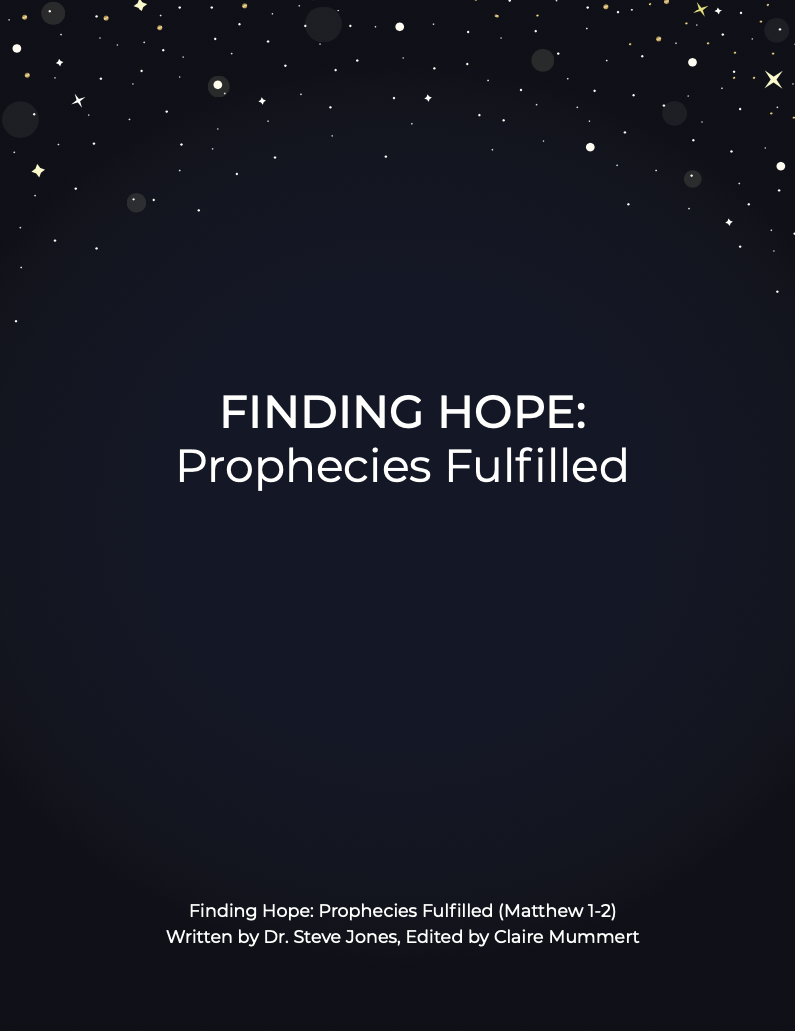Hope is one of those words we see all over the place every Christmas season, along with Peace, Love, and Joy. When we think of hope, we often treat the word as if it is interchangeable with the word “wish.” We say things like “I hope so,” when what we mean is “I really wish something will happen.” There is a dimension to hope that is about having an optimistic state of mind and looking forward to or expecting positive outcomes with respect to future events. However, sometimes we mean more than just wish. Sometimes, hope has for us a hint of expectation or anticipation.
But if hope is to be more than just wishful thinking, it needs to be grounded in something. That is why hope is most closely related to the idea of trust.
A central purpose of scripture is to encourage us to put our hope and trust in God and not in the things of this world, like wealth, or health, or power. One of the ways that God shows us that He is where we should be placing our trust is through fulfilling prophecies. Throughout scripture, God tells His people to expect certain things to happen. The reason He does this is so that when it happens, we can have a renewed awareness that God is in control. But prophecies are more than just improbable occurrences that God predicts. They are windows into the very heart of God. They show us that God is in control and working things out towards the end that He intends. They remind us about important truths we tend to forget.
This is the case with Christmas. The Gospel of Matthew mentions five prophecies that were fulfilled by the birth of Jesus. By looking closely at each one of them, we will see how Jesus fulfills the promises God made to Israel about when, where, and how the Messiah was going to be born. We will also see how each prophecy gives people unique reasons to hope in God.
This curriculum covers the following:
Virgin Birth: Hope for the Lonely (Matthew 1:18-25)
Born in Bethlehem: Hope for the Lowly (Matthew 2:1-8)
Out of Egypt: Hope for the Lost (Matthew 2:7-15)
In the Midst of Suffering: Hope for the Afflicted (Matthew 2:16-18)
From Nazareth: Hope for the Unloved (Matthew 2:19-23)

